
As a nonprofit, your website is critical to the organization’s long-term success. A strong online presence can help you raise money, engage new and existing donors, attract supporters, create media opportunities, and spread the word about your mission. As such, your website needs to be designed with those unique objectives in mind so visitors – including donors, potential partners, and the media – are inspired to take action and get involved.
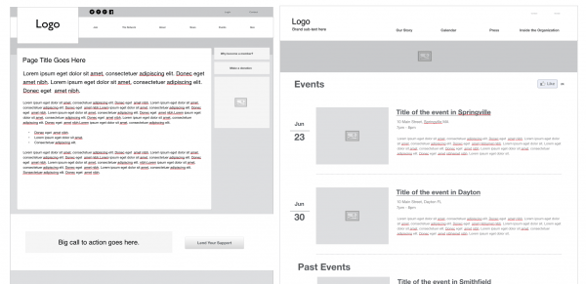
To that end, here are the five best practices for designing a nonprofit website that engages donors, builds relationships with potential advocates and volunteers, and broadens your organization’s reach:
Don’t assume visitors already know what your organization is all about. Because prospects will find your site through organic search, referral links, and social media, they may not be familiar with your nonprofit initially. As such, you’ll need to clearly communicate your mission statement throughout the website. Also, we recommend featuring a prominent link where visitors can learn more about the organization – including the problem you solve, who you help, and why it matters for visitors to get involved. Help visitors dive deeper into taking action by offering clear calls to action related to your organization's core purpose.
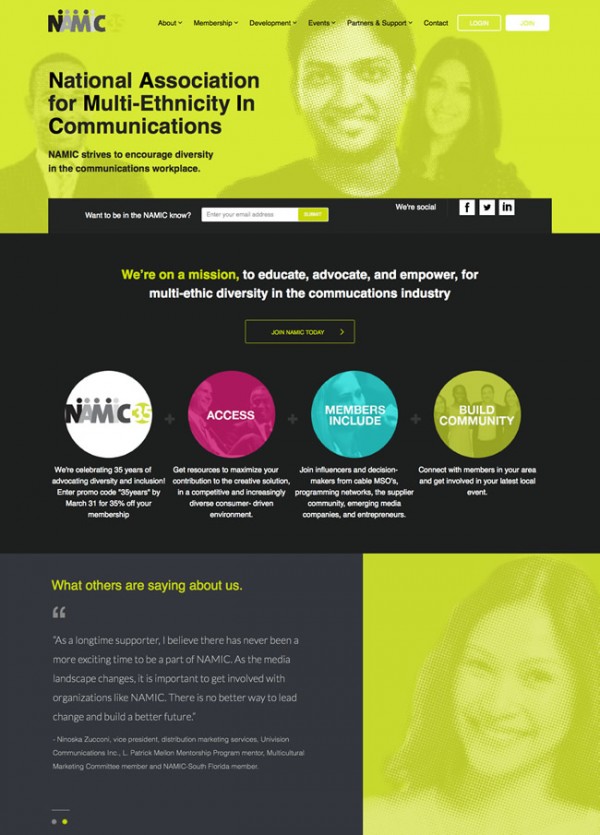
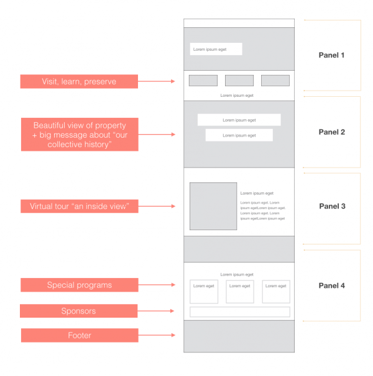
As donations are a crucial part of your nonprofit’s success, your website needs to be optimized to inspire people to support your cause. To that end, we recommend placing an attractive, eye-catching donation button on every website page and making the actual donation process as painless as possible. For example, don’t request excess information on the donation web page – just collect the donor’s name and credit card number to begin. Later on, you can gather additional personal details with progressive profiling, but a short initial form makes visitors far more likely to convert. We also recommend encouraging monthly giving by outlining exactly what the donations will accomplish. For example, create a chart that demonstrates that a gift of $15 per month buys a year’s worth of clothing for 100 underprivileged kids, while $25 provides medical care for those same children.
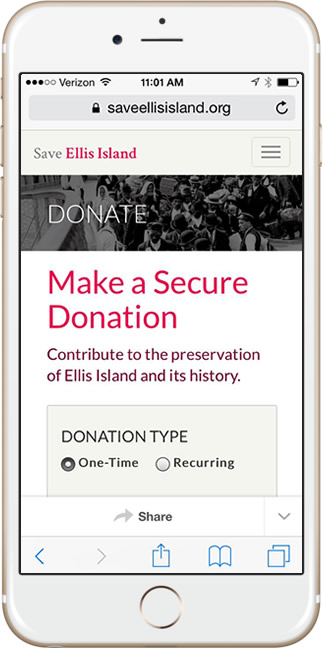
Getting media attention from journalists, bloggers, and publications can raise awareness for your organization and thus inspire new audiences to donate their time and money to support your cause. As such, it’s important that your website appeals to the media and makes it easy for them to find the information they need. To begin, include profiles and contact information for your board of directors so the media can reach out to them for quotes and comments. Also, we recommend featuring a downloadable media kit complete with high-quality images and compelling quotes and communicating that the media can use these items freely without prior permission.
While some prospects may not be able to contribute financially, they may be able to volunteer their time to your organization’s cause. Make it easy for them to get involved by prominently featuring the various volunteer opportunities you offer, along with the appropriate contact information and next steps.
To keep in touch with current and potential donors and encourage them to give at various points throughout the year, you’ll need to capture their email addresses using a subscribe box. To begin, we recommend inviting visitors to sign up for your newsletter to receive exclusive content, event invitations, and updates on your organization’s progress. Or, you could offer them a piece of premium content, such as an interesting eBook, in exchange for their email address.
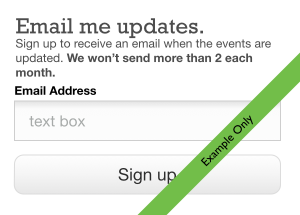
We strongly recommend embracing a content strategy and posting blogs, articles, and company news on your nonprofit’s website. Doing so will increase your organization’s visibility, inspire visitors to stay in touch, and make it easy for prospects to find your website through organic search (SEO). For topics, we recommend posting articles with photos from events and fieldwork; data and facts about your cause; stories about the impact your volunteers and donors have made; educational articles on how readers can get started volunteering; and news updates about your organization.
Learn more: 8 Reasons Arts Organizations Need to Embrace Digital Marketing
by Jonathan Franchell, CEO of Ironpaper - For more tips and hacks: Need to remove a new line after h1 tags? Both web designers and SEO practitioners need to employ headline tags: H1, H2, H3 in several ways to improve web page structure and tag...

The Crowded Arena of the IT Marketplace Updated December 2024 The Information Technology (IT) landscape is experiencing rapid growth and intensifying competition. IT spending is projected to reach nearly 5.1 trillion U.S. dollars in 2024, a...

Updated December, 2024 The field of digital marketing is evolving rapidly in response to new technology and changing buyer expectations. To help career-minded marketers, we’ve rounded up the top 10 skills needed to succeed in the field. These are...

The marketing industry is transforming significantly due to generative AI and increasing market complexity. Gartner's prediction of a 25% decline in traditional search traffic suggests that the era of search engines is dying. AI tools, particularly...
